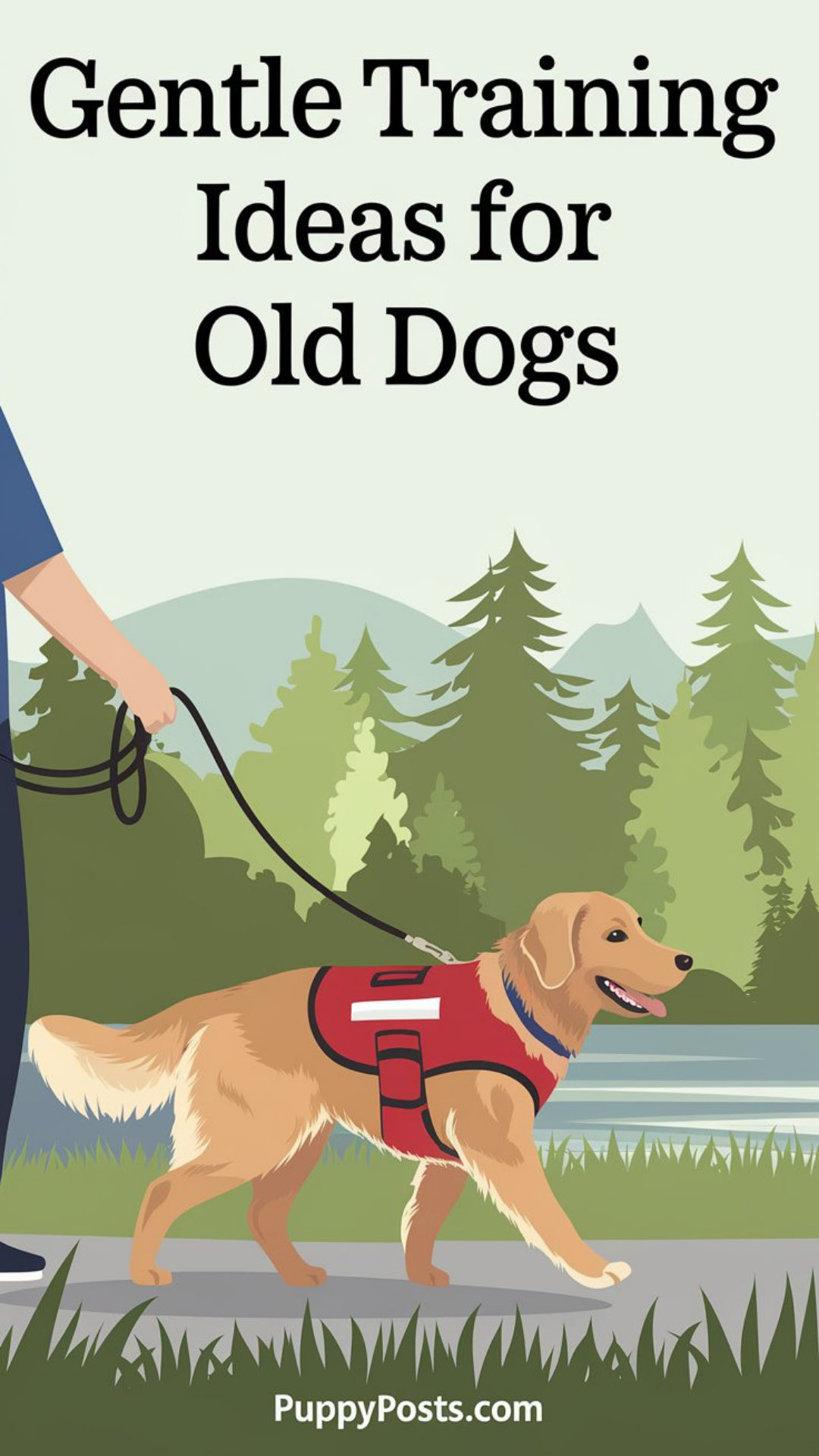Gentle training ideas for old dogs
Alright, let’s talk about our golden oldies. They’ve seen it all, done it all, and maybe their joints ache a bit more these days. But just because they’ve got some grey around the muzzle doesn’t mean their brains have checked out! As a vet for ten years, running my sanctuary here in Jersey, I’ve seen too many people forget that older dogs still need mental engagement. You let that mind go dull, and the body often follows, and that’s not fair to anyone. Keeping their minds sharp is crucial for their quality of life, extending their happy years, and strengthening that incredible bond you share. So, let’s get serious about some gentle, low-impact training ideas that’ll keep those senior smarts firing.

Nose Work: The Ageless Sensei
A dog’s sense of smell often stays strong, even as their sight or hearing might fade. This is your number one tool for gentle mental stimulation. It’s low-impact, incredibly mentally tiring, and deeply satisfying for them.
- Slow-Paced “Find It!”: Scale back the complexity from their younger days, but keep the challenge. Have your older dog “stay” while you gently hide soft, high-value treats (think tiny pieces of cooked chicken, soft cheese, or mashed banana) in easy-to-reach spots around a single, familiar room. Under a blanket, behind a chair leg, or tucked into a soft toy. Give the “Find it!” command and let them use their nose. The mental effort of sniffing out rewards is surprisingly exhausting and builds confidence.
- Scent Trail Walk-Throughs: Drag a favorite soft toy or a treat-scented rag along a short, clear path on the floor (no tricky corners, stairs, or slippery spots). Let your dog calmly follow the scent trail to the hidden item. This taps into their primal instincts and uses their most enduring sense without putting strain on their body.
- “Which Hand?” (The Classic): This simple game is perfect for a quick mental workout. Hold a soft, high-value treat in one closed hand. Present both hands to your dog. Let them sniff and gently nudge the correct hand. When they choose right, open your hand and reward with calm praise. It’s a quick, low-energy mental exercise that engages their sense of smell and decision-making.
Brainy Bites & Puzzles: Keeping Those Gears Greased
Just like humans, older dogs benefit from cognitive challenges to help ward off mental decline. Make them think for their rewards, but keep it accessible.
- Senior-Friendly Puzzle Feeders: Choose puzzle feeders designed for slower, gentler manipulation. Look for ones with larger openings or simpler mechanisms that don’t require force or excessive movement. Stuff a KONG with soft, palatable food (like wet dog food, plain yogurt, or pureed veggies) and freeze it slightly. This makes mealtime a slow, engaging mental exercise without demanding too much physical effort.
- Soft Toy Retrieval by Name: While they might not be able to chase a ball like they used to, they can absolutely learn to differentiate between soft toys. Pick a few of their favorite plush or fabric toys and teach them their individual names (e.g., “Bear,” “Duck,” “Bunny”). Then, calmly ask them to “Go get the [Toy Name].” Reward them heavily when they bring the correct one. This works their memory, listening skills, and gentle retrieval.
- DIY Treat Dispensers (Gentle Edition): Use an empty, clean plastic bottle (remove the cap and any labels). Put a few soft treats inside. Your dog has to figure out how to gently roll the bottle to get the treats out. Make sure the opening is large enough for the treats to fall out easily with minimal effort.
Gentle Movement & Memory: Combining Body and Mind
Even if their movements are slower and more deliberate, engaging their bodies in a controlled way, combined with memory recall, can be incredibly beneficial.
- Slow-Motion “Hide and Seek”: Have your older dog “stay” in one room, or have someone gently hold them. Go hide in an easy, nearby spot where they can find you with minimal movement (e.g., just around a corner, behind a couch where they can easily see you when they turn). Call their name gently and excitedly. When they “find” you, reward with calm praise and a soft treat. This reinforces their recall, provides gentle movement, and offers wonderful mental engagement.
- Gentle Target Training: Teach your dog to calmly touch your hand or a target stick with their nose. Hold your open palm or a target stick near their nose. When they make contact, say “Touch!” and reward. This is a great way to gently guide them through space (e.g., onto their bed, into the car) and engage their focus without any strenuous activity.
- “Go to Your Bed/Mat”: Reinforce or teach them to go to a specific “place” (their comfy bed or a soft mat) on command, and calmly stay there until released. This is a low-impact exercise in obedience, self-control, and memory. It provides mental structure and a calming routine that can be very comforting for an older dog.
My Jersey Straight Talk: Compassion and Consistency are Key
Listen up. With older dogs, patience is paramount. Their learning might be slower, their memory might falter occasionally, and they might tire more quickly. Never get frustrated. Keep these “training sessions” very short – five minutes, maybe two or three times a day – to avoid over-exertion or mental fatigue. Always end on a positive note. Use high-value, soft treats that are easy to chew, and gentle, loving praise.
Keeping an older dog mentally stimulated isn’t just about fun; it’s about respecting their intelligence, preventing cognitive decline, and giving them purpose. It keeps their minds sharp, their spirits bright, and strengthens that incredible bond you share. You put the effort in now, adapting to their changing needs, and you’ll give your old friend the best, most fulfilling golden years they deserve. Trust me, there’s nothing more rewarding.







